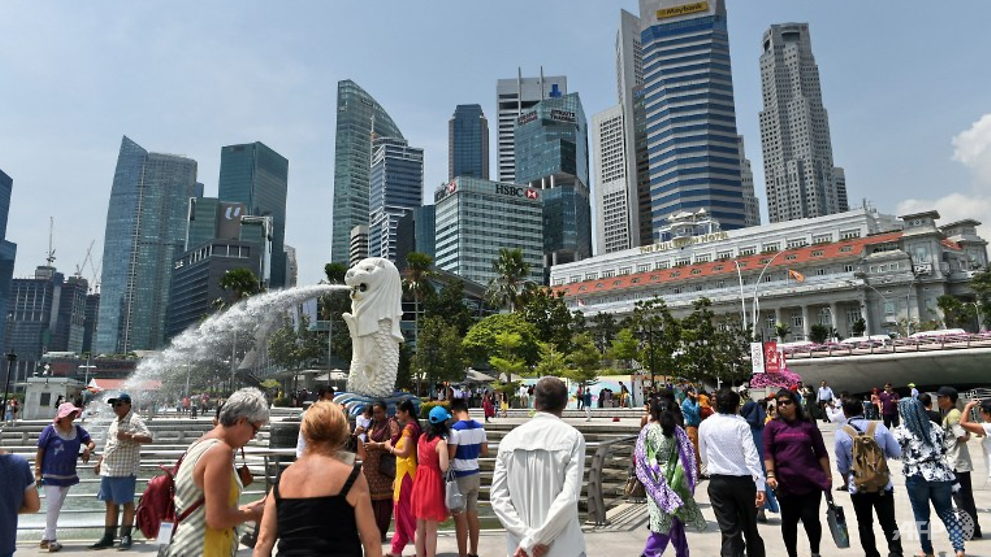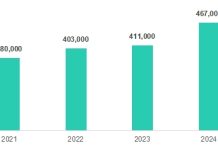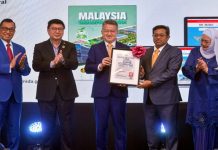Singapore and Australia will intensify cooperation in the green economy, targeting new areas such as sustainable agriculture and green shipping corridors, with the signing of a trailblazing agreement on 18 October.
Under the Singapore-Australia Green Economy Agreement, both countries will embark on 17 joint initiatives for a start, such as developing a list of environmental goods and services to reduce tariff and non-tariff barriers. It will reduce hurdles to cross-border trade in clean energy, for instance.
Other highlights include a partnership to promote business engagements in trade and investment in green sectors and research collaboration in areas such as alternative proteins and lithium battery recycling.
The signing, witnessed by Prime Minister Lee Hsien Loong and his Australian counterpart Anthony Albanese, was the key outcome of the 7th Singapore-Australia Leaders’ Meeting held in Canberra.
Trade and Industry Minister Gan Kim Yong and Australian Minister for Trade and Tourism Don Farrell signed the agreement at the Parliament House after a delegation meeting.
Gan described the agreement as a first of its kind and a pathfinder for rules and standards in advancing trade and environmental sustainability. “We catalyse green growth opportunities and good jobs, while promoting decarbonisation and supporting our smooth transition into a green economy,” he said.
He said that the agreement also underscores Singapore’s commitment to global climate action and the importance of international cooperation in addressing climate change.
Negotiations for the agreement started in September 2021, after it was first mooted at the leaders’ meeting in June of that year.
It sets out seven areas of cooperation: trade and investment; standards and conformance; green and transition finance; carbon markets; clean energy, decarbonisation and technology; skills and capabilities; and business engagements and partnerships.
Australia and Singapore have developed a list of 372 environmental goods and 155 environmental services, which is non-exhaustive and will be reviewed periodically, said the Ministry of Trade and Industry and the Ministry of Sustainability and the Environment.
They also agreed to set up joint working groups for electricity trade and aviation environmental cooperation and establish a forum for government experts to discuss the skills needed for green jobs.
Other initiatives include building partnerships to advance green shipping corridors, which are zero-emission sea routes between ports. There are also plans to work together on best practices for sustainable agri-food systems to reduce their impact on the environment and address food security.
With the agreement being a significant new area of cooperation, a new, sixth green economy pillar will be added to the Comprehensive Strategic Partnership framework established in 2015.
Separately, to deepen cooperation in science and innovation, the National University of Singapore and the Australian Nuclear Science and Technology Organisation signed an agreement to give Singapore researchers preferred access to the Australian Synchrotron in Melbourne.
A synchrotron is a type of particle accelerator, which can be used by scientists to provide insights into many fields of research, such as nanotechnology and bioscience.
Alongside the agreement, a S$16 million programme was launched to promote synchrotron research in Singapore, called the National Synchrotron Programme.
Earlier on Tuesday, PM Lee laid a wreath at the Australian War Memorial, which commemorates Australians who were killed in war, including those who defended Singapore in WWII.
Five joint initiatives to start the Green Economy Agreement:
Setting standards
Singapore and Australia will look at bilateral and international cooperation on standards and technical regulations, among other things, for the green economy. This has the aim of reducing compliance costs for exporters of environmental goods.
Business engagements
Agencies from the two countries will promote and facilitate business-to-business engagements to expand bilateral trade and investments in green economy sectors. Activities include business missions, joint webinars and seminars, and joint promotion of green economy events.
Expert discussions
An Australia-Singapore Green Skills Roundtable will be established for experts from government agencies to discuss how to identify and assess core skills and competencies needed for workers to take on jobs in the green economy.
Promoting research
Australia’s Commonwealth Scientific and Industrial Research Organisation and its Singapore counterpart A*Star agreed to promote bilateral research and development in the areas of circular economy and low emissions technologies, food, digital environment and materials in manufacturing.
Eco-labelling
Under an agreement between the Singapore Environment Council and Good Environmental Choice Australia, more dialogue and partnerships between eco-label schemes of both countries will be facilitated to promote global best practices and standards.















